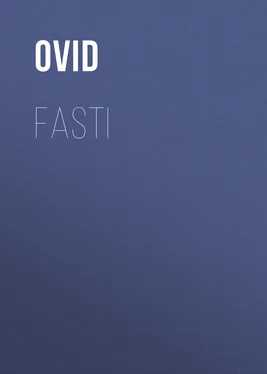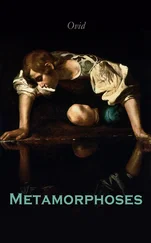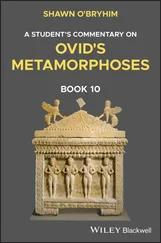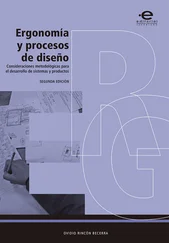Ovid - Fasti
Здесь есть возможность читать онлайн «Ovid - Fasti» — ознакомительный отрывок электронной книги совершенно бесплатно, а после прочтения отрывка купить полную версию. В некоторых случаях можно слушать аудио, скачать через торрент в формате fb2 и присутствует краткое содержание. Жанр: foreign_poetry, Поэзия, foreign_antique, foreign_prose, на латинском языке. Описание произведения, (предисловие) а так же отзывы посетителей доступны на портале библиотеки ЛибКат.
- Название:Fasti
- Автор:
- Жанр:
- Год:неизвестен
- ISBN:нет данных
- Рейтинг книги:3 / 5. Голосов: 1
-
Избранное:Добавить в избранное
- Отзывы:
-
Ваша оценка:
- 60
- 1
- 2
- 3
- 4
- 5
Fasti: краткое содержание, описание и аннотация
Предлагаем к чтению аннотацию, описание, краткое содержание или предисловие (зависит от того, что написал сам автор книги «Fasti»). Если вы не нашли необходимую информацию о книге — напишите в комментариях, мы постараемся отыскать её.
Fasti — читать онлайн ознакомительный отрывок
Ниже представлен текст книги, разбитый по страницам. Система сохранения места последней прочитанной страницы, позволяет с удобством читать онлайн бесплатно книгу «Fasti», без необходимости каждый раз заново искать на чём Вы остановились. Поставьте закладку, и сможете в любой момент перейти на страницу, на которой закончили чтение.
Интервал:
Закладка:
461. Aurora . Heinsius, Burmann and Gierig read nupta , on the authority of seven MSS.
462. The Carmentalia, on the 10th, or III. Id. of January.— Arcad. deae . Carmenta, the mother of Evander; her altar was at the Carmental gate, at the foot of the Capitol.
463. Turni soror , Juturna. See Virg. aen. xii. 134, et seq .
464. The temple of Juturna stood in the Campus Martius, by the Aqua Virgo , which Agrippa had brought thither on account of its excellence.
467. Quae nomen , etc. Scil. Carmenta.
496, 470. Orta , etc. The Arcadians called themselves [Greek: proselaenous] as having existed before the Moon.— Tellus , scil. gens .— Areade , Arcas, the son of Jupiter and Callisto. See Met. II. 401, et seq . Mythology, p. 387.
471. Evander was the son of Mercury and Carmenta. According to Servius, on the aeneis, his father was Echemus, and I am inclined to think that Ovid followed this last genealogy.
473. aetherios ignes , the inspiration of the god.
474. Plena may be joined either with carmina , or with the nominative to dabat .
475. Motus , civil discord.
475. Time verified her predictions.
478. Parrhasium , for Arcadian, part for the whole. Evander dwelt at Pallantium.
490. See Met. III. init . Mythology, 291.
491. Iason is always a trisyllable. For Tydeus and Jason, see Mythology under their names.
493. [Greek: Apas men aaer aieto perasimos, Apasa de chthon andri gennaio patris]. Eurip. frag. Comp. Hor. Carm. II. 9.
494. Vacuo , etc. the air.
495. Hor. Carm. II. 10. 15.
498. Hesperiam tenet . He reaches Italy, not, as Gierig understands it, he held his course for Italy.
500. Sailed up against the stream,— Tuscis , as flowing by Etruria.
501. There was a place in the Campus Martius, named Terentum, where was an altar of Dis and Proserpine, at which secular games were celebrated. I rather incline to think with Gierig, that the vada Terenti was a part of the river near the Terentum.
502. The abodes of the Aborigines.
503-508. The furor divinus comes over her; her hair is disheveled; her countenance becomes stern; by signs she directs the steersman to turn the ship to the land; she is hardly restrained from jumping out of the vessel.
510. Romulus and the Caesars—the flattery of the poet.
511. Hospita , stranger.
515-518. The future greatness of Rome.
519. The fleet of Aeneas. All the following events occur in the last six books of the Aeneis.
520. Femina , Lavinia.
521. Pallas, the son of Evander, slain by Turnus, and avenged by Aeneas.
523, 524. The future conquest of Greece by the Romans. Virg. aen. I. 283.
525. Troy was walled by Neptune. Eight MSS. read moenia for Pergama .
526. Num , etc. Are those ashes (of Troy) nevertheless not higher than the whole world? i.e. Will not Rome spring from them?
527. A tradition, followed by Cato, Strabo, Dio Cassius, and others, related that Anchises came to Italy. Perhaps Ovid followed the same tradition.
528. According to Dionysius. (I. 67,) the temple of the Penates, whom Aeneas brought from Troy, was near that of Vesta. Others (Tacit. An. xv. 41) thought that they were in the temple of that goddess.
529. Julius Caesar who was Pontifex Maximus, and was deified after his death. Some think it is Augustus who is meant.
531. Augustos seems to be equivalent to Caesares .
532. Hanc domum , scil: the Caesarian.
533. Tiberius, by adoption the son of Augustus, and grandson of Julius Caesar, both of whom were deified. His affected reluctance to accept the imperial dignity is well known. Tac. An. I. init .
534. Pondera , the weight of empire.
536. Augusta Julia . Livia, the wife of Augustus, adopted by his testament into the Julian family. This prediction of the poet was accomplished by the emperor Claudius, who placed Livia among the gods.
539. Exsul , Evander.
540. The poet had probably his own miserable place of exile in view.
542. Arcade , Evander.
543. Hercules, when driving the oxen of Geryon from the isle of Erythea. See Mythology, p. 320.
545. For this adventure with Cacus, see Virg. aen. viii. 190, _et. seq . Liv. I. 7.—Tegeaea, Arcadian.
553. Pro corpore , suited to his body.
559. Servata male , having ill kept, i.e. lost.
560. Furta , the stolen oxen.
564. Opus . The Greeks used their [Greek: ergon] in the same sense. Homer says that twenty-two waggons ( juga ) would not have moved the rock with which Polyphemus closed the mouth of his cave.
565. When he supported the heavens for Atlas. See Mythology, p. 324.
575. Occupat , attacks him. Jussit quatuor admoveri, canes, qui celeriter occupavere feram . Curtius, ix.— Clava trinodis , his knotty club. It was of the wood of the oleaster ([Greek: kotinos]) or wild olive.— Trinodis , a definite for an indefinite.
581, 582. The Ara Maxima of Hercules was in the Forum Boarium. According to Virgil, it was built by Evander.
583, 584. The apotheosis of Hercules.
587, 588. The usual sacrifice to Jupiter on the Ides, was a lamb, (see above, v. 57,) here it is a wether.
589. On the Ides of January, A.U.C. 727, Octavianus, after a speech full of hypocritical moderation, restored to the Senate and People such of the provinces as were in a state of tranquillity, retaining those which were still disturbed.—The Senate, on account of this, decreed him the title of Augustus.
591. Generosa atria , the halls of the different noble families at Rome.— Ceras , the waxen images of their ancestors, under which were inscribed their titles and actions.
593. Africa etc. P. Cornelius Scipio Africanus.— Isauruas . P. Servilius Isauricus.
594. Cretum . Q. Caecilius Metellus Creticus.
595. Numidae . another Q. Caecilius Metellus, the predecessor of Marius, in the war against Jugurtha.— Messana . Claudius Caudex was sent to the aid of the Mamertines in Messana. He relieved the town, but derived no title from it. His statue and deeds, however, stood in the Atrium of the Claudii.
596. Numantina . Scipio aemilianus.
597. Druso . Drusus, the brother of Tiberius, and father of Germanicus, to whom the poem is dedicated, died in consequence of a broken leg, caused by his horse falling on him in the summer-camp on the Rhine, A.U.C. 745. The senate decreed the title of Germanicus to him and his children.
598. Quam brevis . How shortlived! Paterculus speaks in high terms of the virtues of Drusus. See also Hor. Car. iv. 4.
599. Caesar . C. Julius Caesar.
601. T. Manlius Torquatus. Liv. viii. 10.
602. M. Valerius Corvinus. Liv. vii. 26.
603. Magne . Cn. Pompeius Magnus.
604. C. Julius Caesar.
605, 606. When Fabius (A.U.C. 449.) divided the lower class of people into the four tribes named the Urbanas he was given the title of Maximus, which adhered to his family.— Nec gradus ullus , of comparison, playing on the magne of v. 603.
608. Hic . Augustus.
609. The Greeks rendered Augustus by [Greek: sebastus], from [Greek: sebo], to venerate. This name was considered beyond any human title.
610. Sacerd. manu . The Pontifex, when dedicating a temple, held one of the door-posts.
611. I do not think, with Gierig, that the poet derives augurium from augustus . It appears to me that he deduces them both from augeo . Loca quoque religiosa et in quibus augurato quid consecratur augusta dicantur ab auctu vel ab avium gestu gustuve . Suet. Aug. 7.
Читать дальшеИнтервал:
Закладка:
Похожие книги на «Fasti»
Представляем Вашему вниманию похожие книги на «Fasti» списком для выбора. Мы отобрали схожую по названию и смыслу литературу в надежде предоставить читателям больше вариантов отыскать новые, интересные, ещё непрочитанные произведения.
Обсуждение, отзывы о книге «Fasti» и просто собственные мнения читателей. Оставьте ваши комментарии, напишите, что Вы думаете о произведении, его смысле или главных героях. Укажите что конкретно понравилось, а что нет, и почему Вы так считаете.












